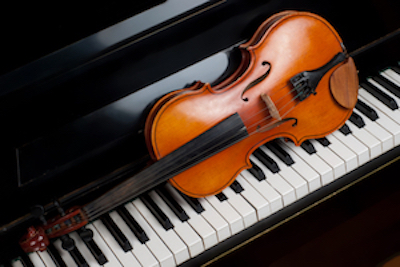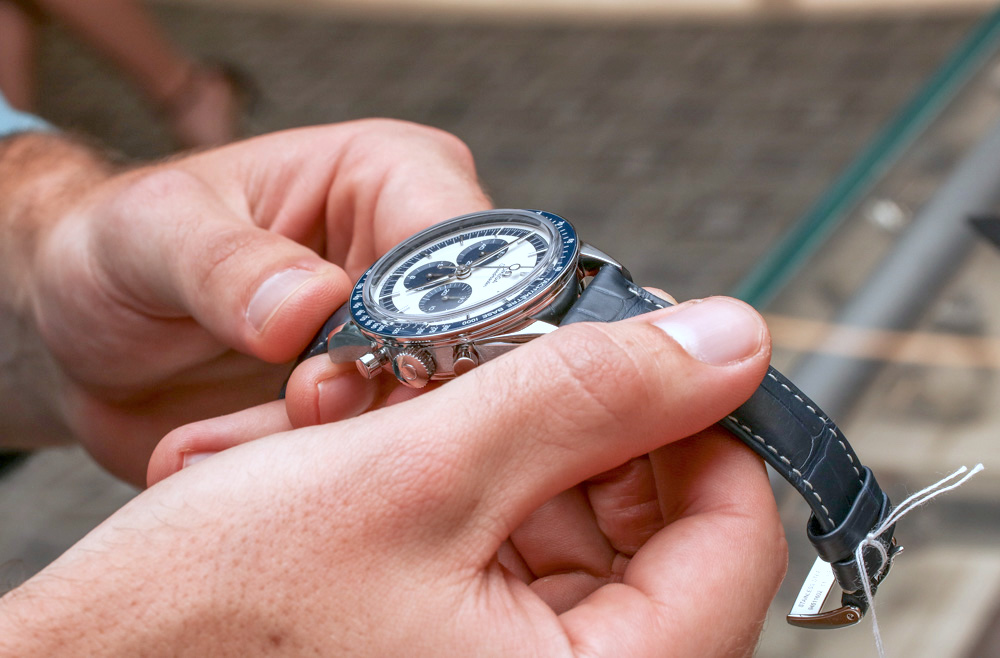Last time, we noted that expert valuers assess how close to the original condition a classic guitar remains. A 1950s solid-body electric guitar in excellent condition, for example, might have a secondary value of £15,000. But expert valuers will subject the instrument to closer scrutiny, perhaps inspecting it under ultraviolet light, which can detect visible modifications that the naked eye would miss. A replaced decal bearing the logo, for example, no matter how skilfully executed, will cut the value to around £11,000 – about 25 percent less.
Unlike their solid-body electrical cousins, with acoustic guitars it’s virtually impossible to mix and match parts from different instruments, because the wood they’re crafted from is rare and, these days, meticulously regulated. Older Martin D-45s are currently at the top end of the acoustic guitar market, largely because they’re exceedingly rare. In unblemished condition, they can fetch hundreds of thousands of pounds.
Pianos, however, may not be as valuable as their owners hope, even if they’re beautiful-looking antiques. Richard Reason, co-owner of Piano Auctions in Bedford, explains why:
“Sadly, most pianos are, at best, of mediocre quality even if they have great sentimental value – they are just worthless pieces of furniture. This is because a century ago every home aspired to have a piano – it is what we had in our living rooms rather than a TV. There is now a huge glut of these old pianos, even though demand has gone.”
Top-drawer pianos with superb build and prestigious name tend not only to hold their value, but to appreciate over time, with Steinway leading the pack as the most sought-after blue-chip name. Other names that are codes for quality and value are Bösendorfer, Blüthner and Bechstein, as well as an offshoot of the Steinway family, Grotrian-Steinweg. The modern piano-maker Fazioli is also considered a high-value name.
As with all music instruments, condition is key, as indeed is aesthetic appeal. With pianos, unlike guitars, expert restoration can add value – they’re more like classic cars that can be lovingly restored to their former glory.
Provenance can boost the value of a musical instrument massively: if someone famous once owned it, then its value can rocket. The humble-looking Steinway “Model Z” upright that John Lennon used to compose (and record) “Imagine” in 1971 was sold at auction in 2000 (to George Michael) for £1.67 million!
With musical instruments being just one of our numerous asset categories, it’s evident that we try to be as versatile as possible at Unbolted. Unique amongst peer-to-peer lenders in the alternative finance space, we’ll seek to meet your borrowing needs without subjecting you to any intrusive credit searches, all of which leave a permanent digital footprint of your loan applications behind.
If you’ve got a valuable personal possession such as a high-end musical instrument, that’s all the security our pool of p2p investors need for our low-interest secured asset loan. While we appreciate that you may love your instrument, consider this: if you’re unable to settle a loan with any other finance provider, you’ll probably be negatively reported (there are lots of digital footprints to contend with in the world of finance). At Unbolted, your financial reputation will never be damaged – we never report. The worst that can happen is that we sell your asset at auction to raise the outstanding money.



 WhatsApp Us
WhatsApp Us


